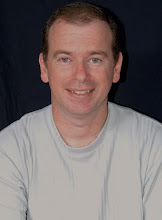 Information courtesy of the Time Team website:
Information courtesy of the Time Team website:Detectorists have the potential to make a great contribution to archaeology if they work within the law and in conjunction with landowners, academics and field archaeologists. For example, the Hoxne Hoard, one of the richest Roman treasures ever discovered, was found in a Suffolk field by a detectorist who promptly reported it, saving many rare and delicate objects for conservation that would otherwise have been destroyed by the plough.
Time Team has benefited hugely, too. At the investigation at High Worsall in the 1998 series, detectorist John Bradbury gave us terrific assistance checking spoil heaps, and he found several medieval artefacts. And Tim Hand found many coins and the wonderful Roman brooch at Turkdean during the 1997 Live, plus even more brooches when we returned there for the 1999 series. We couldn't have managed to investigate the huge site at Bawsey St James for the 1998 Live without the help of all the detectorists, who work very closely with county archaeologist Andy Rogerson. And you can read detectorist Denny Woodthorpe’s account of his involvement with Time Team when he helped in the excavation of an Anglo-Saxon cemetery in the 2001 series.
Detecting is now an established tool within the battery of methods available to professional archaeologists, and Time Team is happy to use it. This is especially so if it is carried out by local detectorists with particular experience of conditions in the area.
Unfortunately, however, there is a negative side. Any idiot can get hold of a metal detector. The irresponsible and criminal use of this little machine has greatly damaged the reputations of responsible detectorists. If all detectorists worked with local landowners and archaeologists, and recorded, reported and deposited their finds in their local museum, there would be no difficulties. Regrettably, the activities of a minority have made many archaeologists wary of all metal detectorists. Finds are unearthed and removed with no record of the context in which they were found; less valuable (to non-archaeologists) finds are simply discarded.
At the site of the 2001 Live, unscrupulous detectorists were still raiding the site even as Time Team was setting up in advance of the dig. The importance of recording metal detectorists' finds is now recognised by the archaeological community, who have persuaded the government and the Heritage Lottery Fund to fund a voluntary recording scheme for detected finds: the Portable Antiquities Scheme. The bucket found by a detectorist at the site of the 2001 Live was reported under this scheme.












2 comments:
we provide the Golden Triangle India - Our Golden Triangle India Packages includes Delhi Agra Jaipur Various sightseeing locations and more.
Hi, Thanks For Your Post. Best Beginner Metal Detector
Post a Comment